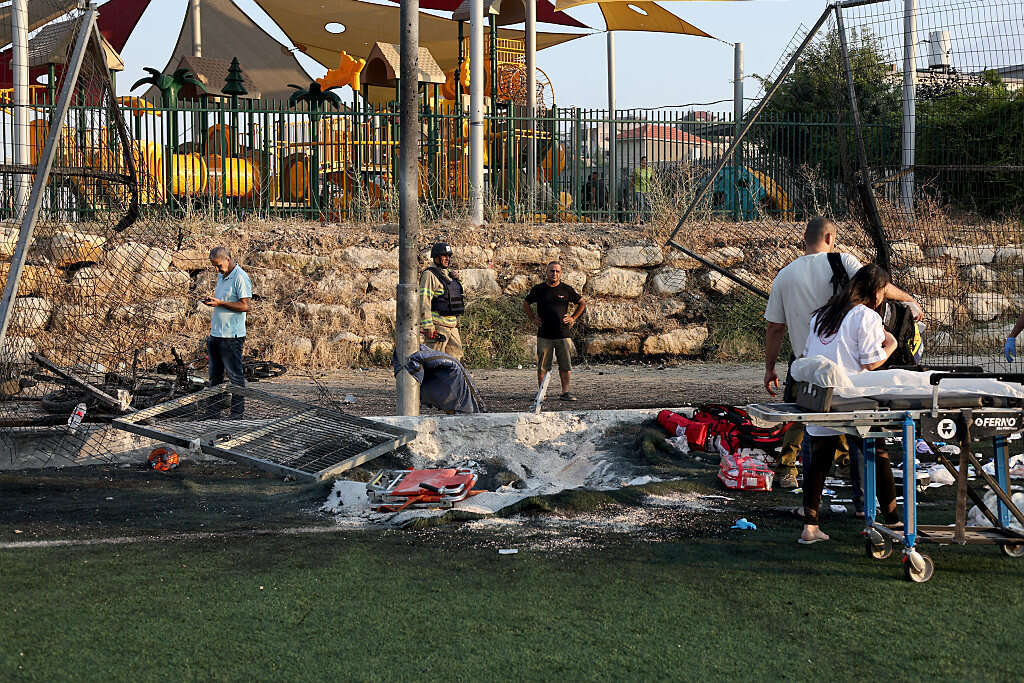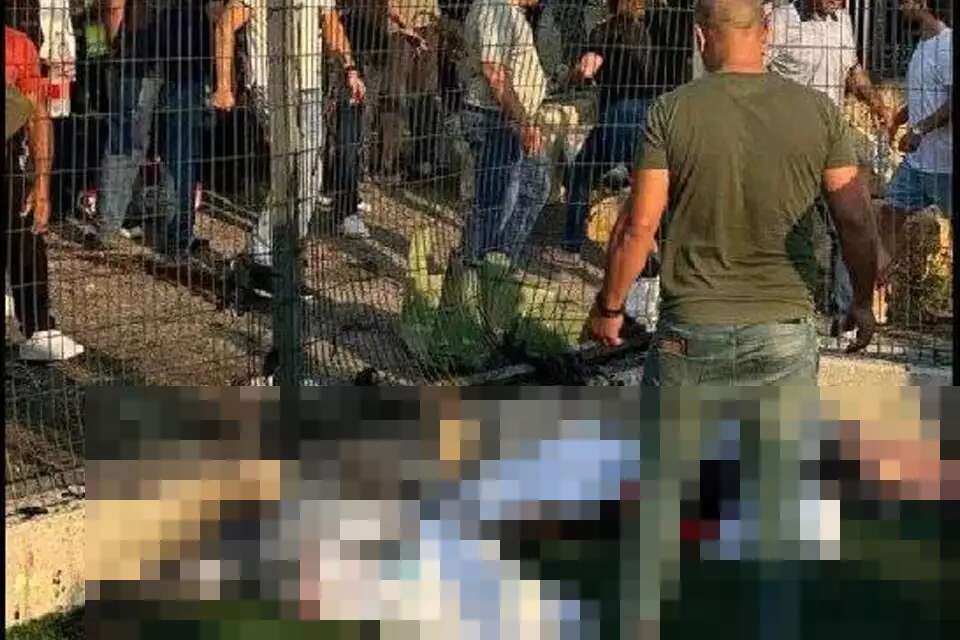Hezbollah's terrorist attack on the Druze town of Majdal Shams, in which 12 local children were murdered by a rocket attack, was met with anger and shock within the Syrian Druze community. For Syrian Druze, the residents of Majdal Shams are relatives, fellow countrymen, and coreligionists, and any harm to them is a direct attack on them and on the entire Druze community in Syria.

While social media blazes with fury and calls for revenge, the spiritual leader of the Druze in Syria, Sheikh Hikmat al-Hijiri, published a vaguely worded letter calling for justice against the perpetrators of the massacre. "We condemn the despicable crime against innocent people in the peaceful and quiet village of Majdal Shams," wrote the leader, urging the UN to investigate the incident.

"We call on the UN and the international community to investigate the guilty faction, as it is clear to everyone who the perpetrators are," said the Sheikh ambiguously, hinting at the accusation against Hezbollah. Despite the non-committal wording, it is an accusatory gesture towards the Syrian regime and its allies in Hezbollah, who deny any connection to the incident.

The Druze leader's appeal was published on the X account of the Druze news channel "Suwayda24," which reports from the Jabal al-Druze area in southern Syria. The responses on the page leave no doubt about the sentiments of the local population. "Hassan Nasrallah took his revenge on the Druze who supported the rebels and not Assad," wrote Hassan al-Aridi, a resident of Suwayda on social media. Another Druze, named Kholoud, wrote: "Nothing Hezbollah says will help; we know who is responsible for this crime."
The Druze Rift
The Druze anger towards the Syrian regime and Hezbollah is part of a long process of estrangement that the residents of Jabal al-Druze have undergone from the Syrian regime, to which they were once loyal. Syria is home to more than 600,000 Druze, the largest Druze community in the world, most of them in the Jabal al-Druze area in the southeast of the country. For decades, the Druze were at the forefront of the Ba'ath regime in Syria, which showed a certain tolerance towards their religion.
When the revolt against Assad's rule broke out in 2011, the Druze found themselves on the fence. Many served in the regime's army, and they feared the religious and fundamentalist nature of many of the rebel groups. The Druze's fears became a horrific reality in July 2018. Hundreds of ISIS terrorists carried out a series of terrorist attacks, suicide bombings, and kidnappings of Druze civilians in the Jabal al-Druze area. 258 Druze civilians were murdered, and 36 women were kidnapped by the terrorists and sold into slavery.
However, when the Druze needed the regime most, Assad's army preferred to send forces to fight the rebels to the south rather than protect Jabal al-Druze. Worse still, regime officials acted to disarm the Druze militias in the months leading up to the attack, fearing their loyalty to the regime was insufficient.
The betrayal by regime officials left anger and bitterness among the Druze, which erupts repeatedly in the Jabal al-Druze area, which the regime struggles to control. Waves of protests and even violence against regime officials occur repeatedly in Suwayda, the capital of the Druze province, and the Druze themselves are armed and maintain complex relations with Assad's army, which now controls all of southern Syria. In May, massive protests took place in Suwayda, and the flags of the Syrian opposition were hoisted over government buildings in the city.
Now, it is very likely that the deteriorating relations between the Assad regime and the Druze will reach a new low following Hezbollah's attack on the Druze living in Israel. As Israel's northern border with Syria becomes another theater of operations against it by Iranian militias and Hezbollah, the Druze turning against the regime may create an interesting alignment of interests.




